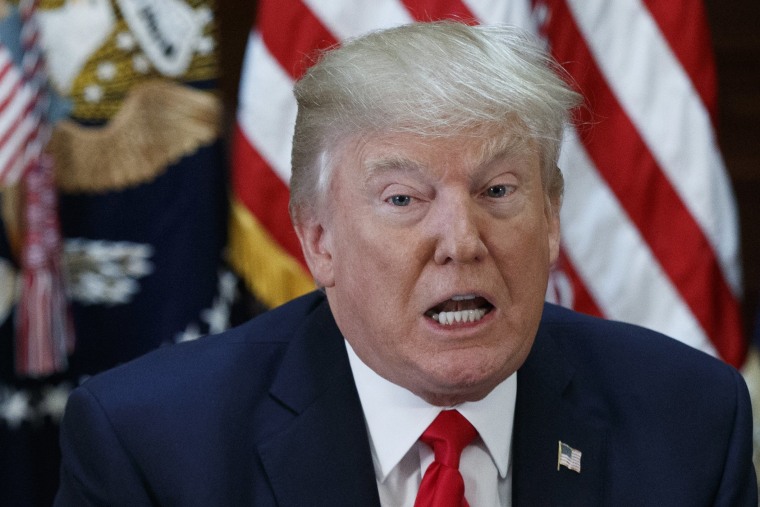Whenever Donald Trump uses the phrase "ahead of schedule," it's safe to assume his claims are at odds with reality.
The president has said, for example, that construction of a border wall is "way ahead of schedule" (it isn't). Trump has said his plans to overhaul veterans' care are "ahead of schedule" (they're not). He's insisted that his proposed far-right changes to Americans education are, you guessed it, "ahead of schedule" (they're not, either).
Yesterday on Twitter, the president added to the list:
"The massive TAX CUTS/REFORM that I have submitted is moving along in the process very well, actually ahead of schedule. Big benefits to all!"
First, tax cuts and tax reform aren't the same thing, whether Trump understands the differences or not. Second, he hasn't "submitted" a plan, so much as he's released a one-page wish list, summarizing tax changes he'd like to see Congress tackle on his behalf. Third, the benefits of the outline the White House put together may be "big," but they disproportionately benefit the very wealthy -- not "all" Americans.
But even if we look past all of those details, the process isn't "ahead of schedule"; it's actually behind schedule.
Trump and his Republican allies intended to tackle tax policy before August. The Wall Street Journal reports today, however, that the debate is stuck, and many of the GOP ideas "are either dead or on political life support."
Republicans, who control both chambers, are scouring the tax code, searching for ways to offset the deep rate cuts they desire. But their proposals for border adjustment—which would tax imports—and for ending the business interest deduction and making major changes to individual tax breaks for health and retirement have all hit resistance within the party. The only big revenue-raising provision with anything close to Republican consensus is repealing the deduction for state and local taxes, and that idea faces objections from blue-state lawmakers in the party.The GOP's dreams have collided with interest-group lobbying and the tax system's reality. Politicians all profess to hate the tax code, but they don't agree on exactly what they hate. Voters gripe about complexity but are wary of losing cherished breaks that are woven into the economy.
As things stand, stakeholders have all but given up on the idea that changes to the tax code will be approved this year.
All of which brings us to a familiar question: does Trump believe the bogus claim he's pushing, or does he realize what he's telling the public isn't true?
Postscript: As long as we're on the subject, let's pause to note how the president's so-called "plan" took shape. The administration's intended strategy involved the Treasury Department taking the lead, crafting a plan over the course of a few months. Trump, whose impulsive instincts routinely get the better of him, then decided to abandon that course after seeing a conservative New York Times op-ed, which he ordered aides to adopt as his own blueprint.
This isn't how federal policymaking is supposed to work in the executive branch, but it is how the White House operates in Trump's America.
